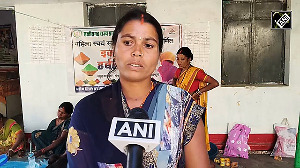In the wake of a US study linking two main diabetes drugs to heart attacks, the Indian government has warned of banning these medicines if found harmful.
Taking the study seriously, the government has started monitoring the effects of these crucial medicines, used by about 10 million diabetics in India, and the process is expected to take between six months and a year.
"We have started the process of conducting a focussed pharmacovigilance monitoring. It is a long procedure, but if the preliminary findings in six months time show that they pose a risk to Indians, we will ban it," M Venkateswarulu, Drug Controller General of India, told PTI.
Pharmacovigilance monitoring involves assessment, detection and prevention of adverse affects, particularly long-term and short-term side-effects of medicines.
A recent US study linked the medicines Avandia and Actos to a 43 percent higher risk of heart attack, following which the US Food and Drug Administration contemplated to put the two drugs under the strictest drug safety warnings.
The medicines are sold in India as Windia and Pioglar and many drug companies manufacture them.
Venkateswarulu said the findings of the US study are still under examination. "The drugs have been in the market for the past nine years and helped many. They have been the brand leaders. Placing stricter warnings are just suggestions and have not been implemented," he said.
Besides the trial, a post-market surveillance would be conducted to see their risks and carry out benefit analysis. "We are watching the situation in the US. If they come out with stricter warning, we will follow suit. We will not even hesitate to issue a ban," he said.
At the moment, all information pertaining to the drugs is being collected, including safety data from the manufacturers GlaxoSmithKline, Venkateswarulu said.
"A committee will then set a protocol about how to conduct the study. The study will be conducted in five centres, including Delhi and Mumbai," he said, adding the study could focus on the impact of the drugs on pregnant women, older patients and young ones.
Alarmed by the findings of the US study, some leading endocrinologists stopped prescribing the two drugs to their patients, said Dr Anoop Misra, director in the Department of Diabetes and Metabolic diseases in the Fortis Hospital.
"We have asked all our doctors to stop prescribing the drugs. Even those who were taking them have been prescribed different drugs," he added.
"These are the third widely prescribed drugs with approximately six to ten million people in India taking them," Dr Misra said.
Dr S K Wangnoo, a senior consultant at Apollo Hospital, also alarmed by the study said he will not be prescribing the drugs to elderly patients, those with family history and those falling in the high-risk category. But Venkateswarulu described this as as a 'knee-jerk' reaction.






 © 2025
© 2025